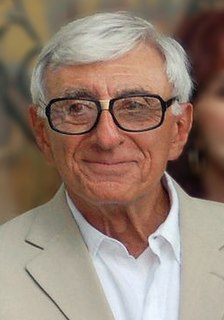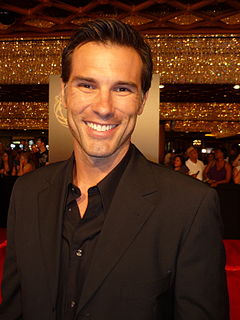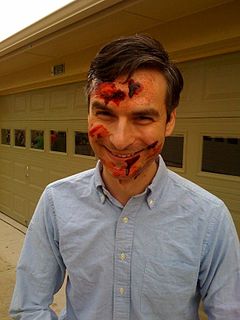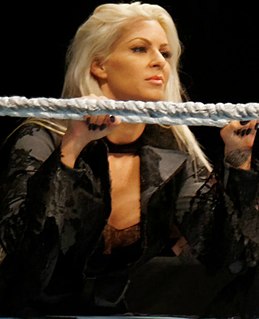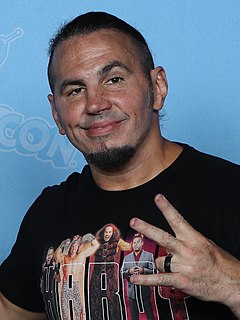A Quote by Bill Goldberg
I had creative control over my character, which means if they wanted me to do something that I didn't agree with, then I wouldn't do it. If it was good for the show, then I had no problem. If it was demeaning to the character and wasn't adding a positive light to the show, then I can guarantee that I wouldn't do it.
Related Quotes
The British model, which I've always thought was great, is that you do a TV show and then they sell it. Then you can buy it at the video stores forever, so it never went away. But American TV used to be if you had a show and it got cancelled, then it never existed. It was just this thing you heard about and you couldn't see it again. There is something so great about shows getting released and people getting to watch them over and over again. It definitely takes the sting out of it.
The requests started coming in from other prisoners all over the United States. And then the word got around. So I always wanted to record that, you know, to record a show because of the reaction I got. It was far and above anything I had ever had in my life, the complete explosion of noise and reaction that they gave me with every song. So then I came back the next year and played the prison again, the New Year's Day show, came back again a third year and did the show.
A ghostly side note Soldier boy Miller played a Lucifer-like character in the final two episodes of Joan of Arcadia. Coincidence I do find it strangely poetic, ... that a character who shows up on a show about God to play something kind of satanic winds up in the very last two episodes of that show, and then appears in the show that replaces that show on its exact time and night the following season.
If you do a black character or a female character or an Asian character, then they aren't just that character. They represent that race or that sex, and they can't be interesting because everything they do has to represent an entire block of people. You know, Superman isn't all white people and neither is Lex Luthor. We knew we had to present a range of characters within each ethnic group, which means that we couldn't do just one book. We had to do a series of books and we had to present a view of the world that's wider than the world we've seen before.
TV and film both attract me equally. In both, you do search for a role that would be enjoyable to do, that has a great storyline and then, secondly, you look at the cast and the crew - are they respectable? How I look at it is my character - has the character got enough substance? It can't just be a one faced character, which is there to fill a gap. He has to have a purpose, so if it ticks all of those boxes then generally it's a good choice.
There is, in fact, not much point in writing a novel unless you can show the possibility of moral transformation, or an increase in wisdom, operating in your chief character or characters. Even trashy bestsellers show people changing. When a fictional work fails to show change, when it merely indicates that human character is set, stony, unregenerable, then you are out of field of the novel and into that of the fable or the allegory. - from the introduction of the 1986 Norton edition
I was a crazy Pee-wee Herman fan when I was in my early teens. Before he had the kids' TV show, he had a nightclub show in L.A., and I had gotten a VHS copy of it. It was a kids' show, but onstage in a bar, so it's sort of poking fun at the kids' show. And I was obsessed with that, and then 'Pee-wee's Big Adventure.'
I was on Twitter and I saw that I had over 1,000 responses and I was like "OK, something happened," so I opened it and it was like "Charice on Glee!" I didn't get an e-mail from the show so I wasn't tweeting at that time. I just watched my fans tweet. And then after about 30 minutes the show e-mailed me and said congratulations.

